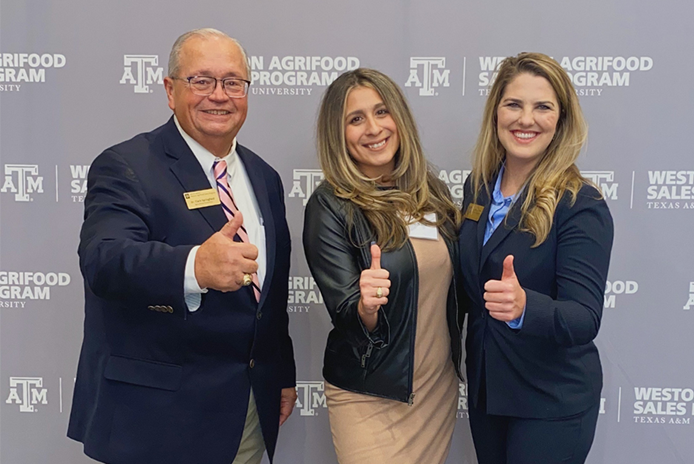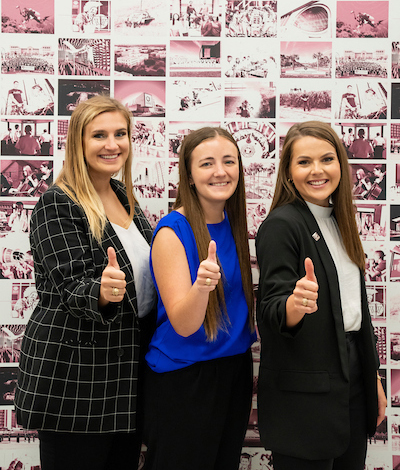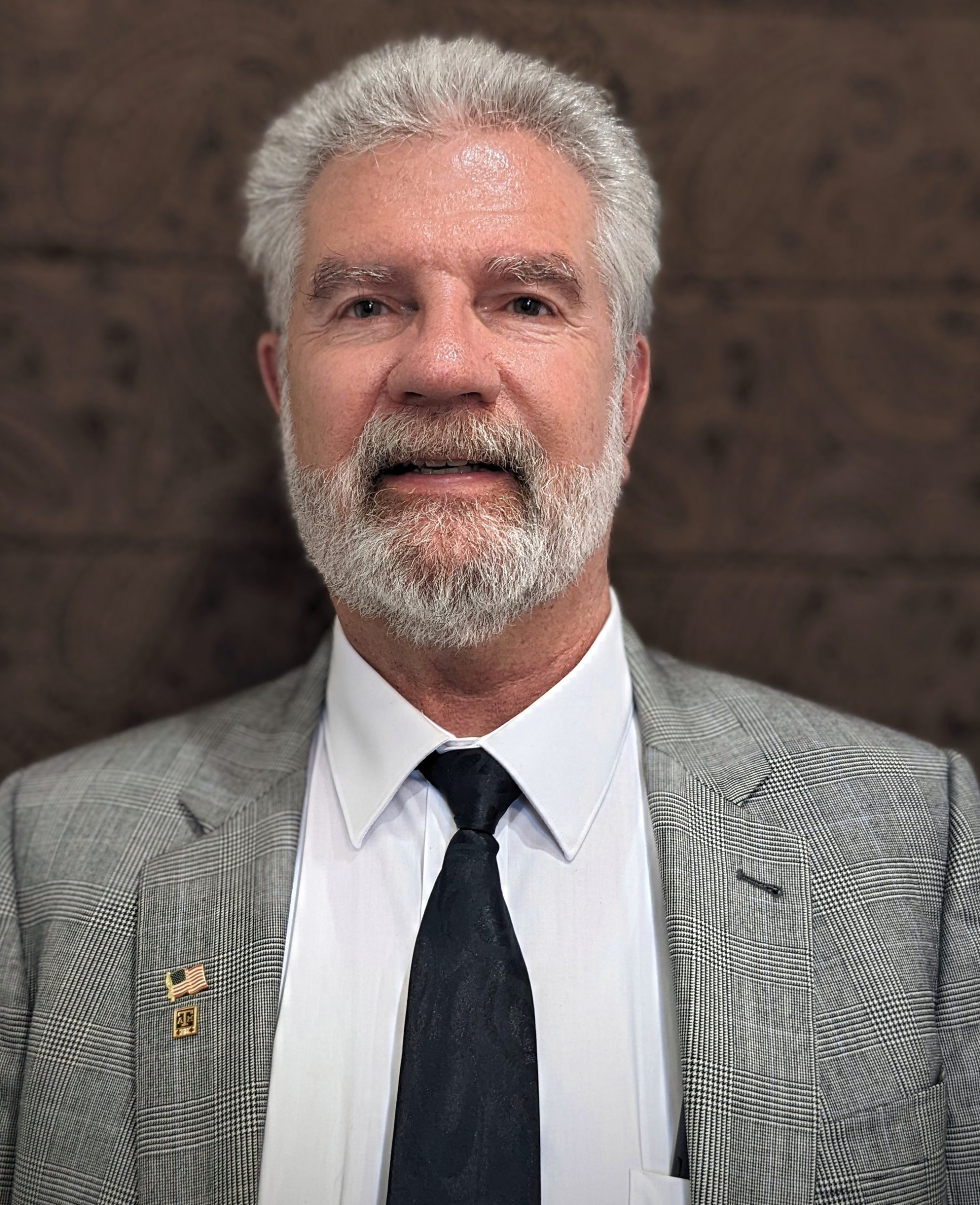
Graduate Degrees
About our Graduate Programs
The Department of Agricultural Economics engages people in the use of economic analysis for making decisions involving agribusiness (including food and fiber production, supplying inputs, processing products and marketing), natural resources and communities. Students are taught to develop their leadership, analytical and communication skills. Disciplinary research and graduate education enhance the use of economic principles and research methods in solving economic problems facing society. Applied research programs emphasize the analysis of business and public policy issues.
The M.S. and Ph.D degrees in Agricultural Economics are now classified as Science, Technology, Engineering and Math (STEM) degrees. Our discipline has evolved to our training being highly quantitative using mathematics and statistics to study real world complex agricultural, resource, and economic problems.
With over 150 students and more than 50 graduate faculty members, we offer one of the largest and most diverse graduate agricultural economics programs in the country. Thanks to the large and diverse student body hailing from more than 15 states and over 20 countries, students have the ability to collaborate and learn from others with different cultural backgrounds and various knowledge bases. On average, 60% of our full-time graduate students are funded through departmental assistantships and scholarships, University fellowships and scholarships and research grants.
Graduate Degrees
The M.S. and Ph.D degrees in Agricultural Economics are now classified as Science, Technology, Engineering and Math (STEM) degrees. Our discipline has evolved to our training being highly quantitative using mathematics and statistics to study real world complex agricultural, resource, and economic problems.

Master of Agribusiness
Students in this program, offered in partnership with the Mays Business School, learn how to use data and economic modeling to contribute to the efficient production and distribution of food, feed, and fiber.

M.S. in Agricultural Economics
Both the thesis and non-these option of this STEM-approved degree provide professional training for students seeking essential skills for today’s business world, with a focus on the food and fiber industry.

Ph.D. in Agricultural Economics
Our STEM-approved Ph.D. program offers rigorous training in economics and quantitative methods. Students can choose to focus on Agribusiness, Applied Market Analysis, or Natural Resource and Environmental Economics.

Opportunities after graduation
Students with a graduate degree in Agricultural Economics can pursue a variety of jobs in academia, government, or the private sector. Explore the job placements of our recent graduates and our current job candidates to learn more about their placements.
Information for new graduate students
Admitted graduate student resources
- Steps to Complete Before the Semester
- General FAQs about Graduate and Professional School
- Campus-Based Graduate Student Housing
- Health Insurance
Graduate Funding Opportunities
We understand that graduate education can be expensive. Our department and Texas A&M University offers competitive assistantships and fellowships to help alleviate the cost of higher education and make attending graduate school more affordable. Check with the department graduate office and Office of Graduate Studies for details on opportunities available across the university.

Connect with the Graduate Student Association
Our Graduate Student Association (GSA) promotes academic, professional, and social networking among students and faculty. All graduate students are encouraged to participate in the many professional, service, and social events held throughout the year. Students serve on committees working to impact the department and university. The association also awards competitive travel scholarships and grants to students participating at professional meetings and conferences.
Information for current graduate students
Texas A&M Graduate & Professional School
- Graduate and Professional School
- Graduate and Professional Academic Forms
- Important Dates and Deadlines
- Thesis and Dissertation Services
- Steps to Fulfill Master’s Degree Requirements
- Steps to Fulfill Doctoral Degree Requirements
- Document Processing Submission System
- Professional Development
- Ombuds Services (Student Grievances)
Department and other campus resources
- AGEC Graduate Handbook
- AGEC 685 Directed Studies Form
- AGEC 693 Professional Study Paper Proposal
- AGEC 684 Professional Internship Plan Form
- MAB 684 Professional Internship Plan Form
- AGEC Past Preliminary and Qualifying Exams
- Graduate and Professional Studies Forms
- AGEC Graduate Student Directory
- AGEC Graduate Student Association
- Free Online Yale Course: Applied Econometric Methods (Ph.D.)
- Graduate and Professional Course Catalog
- Texas A&M International Student Services
Contact Us
David Leatham
Professor and Associate Head for Graduate Programs
Karen S. Lepley
Program Manager - Master of Agribusiness
Kathleen Roche
Graduate Program Coordinator - Agricultural Economics
Victoria Salin
Professor, Co-Director of the Agribusiness, Food and Consumer Economics Research Center, Chair of the Intercollegiate Faculty of Agribusiness, Director of the Master of Agribusiness Program
Have Questions?
For degrees or admissions questions:
For general questions:




